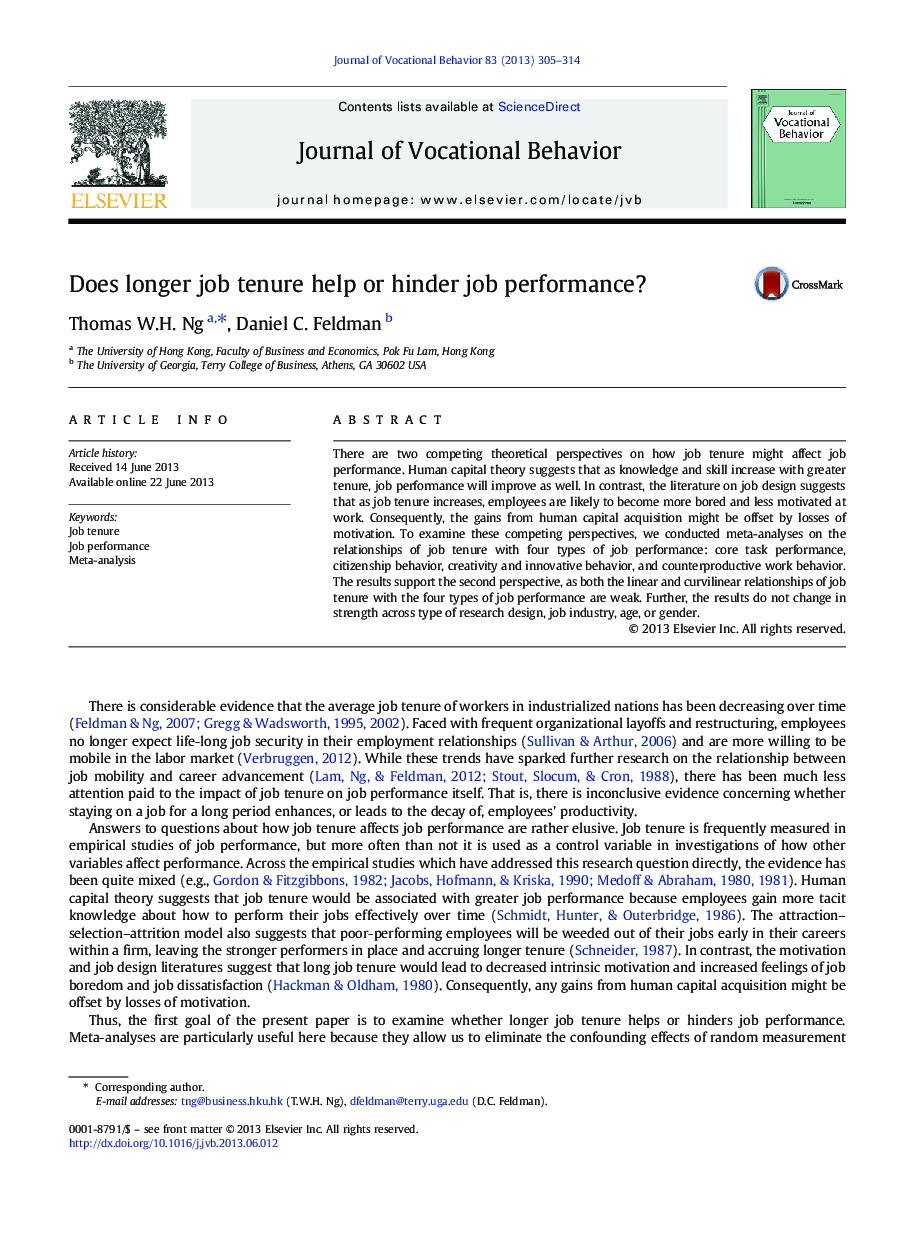| Article ID | Journal | Published Year | Pages | File Type |
|---|---|---|---|---|
| 886961 | Journal of Vocational Behavior | 2013 | 10 Pages |
•This study evaluates the cumulated empirical evidence on the relationship between job tenure and job performance.•Results suggest that, contrary to common beliefs, job tenure is largely unrelated to job performance.•A key reason is that, as job tenure increases, employees are likely to become more bored and less motivated at work.•This study draws practitioners' attention to the importance of rekindling the job motivation of long-tenured workers.
There are two competing theoretical perspectives on how job tenure might affect job performance. Human capital theory suggests that as knowledge and skill increase with greater tenure, job performance will improve as well. In contrast, the literature on job design suggests that as job tenure increases, employees are likely to become more bored and less motivated at work. Consequently, the gains from human capital acquisition might be offset by losses of motivation. To examine these competing perspectives, we conducted meta-analyses on the relationships of job tenure with four types of job performance: core task performance, citizenship behavior, creativity and innovative behavior, and counterproductive work behavior. The results support the second perspective, as both the linear and curvilinear relationships of job tenure with the four types of job performance are weak. Further, the results do not change in strength across type of research design, job industry, age, or gender.
